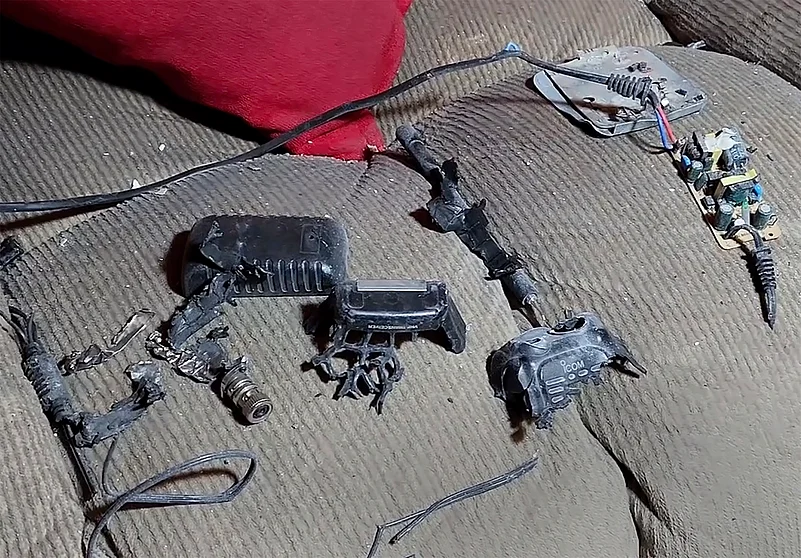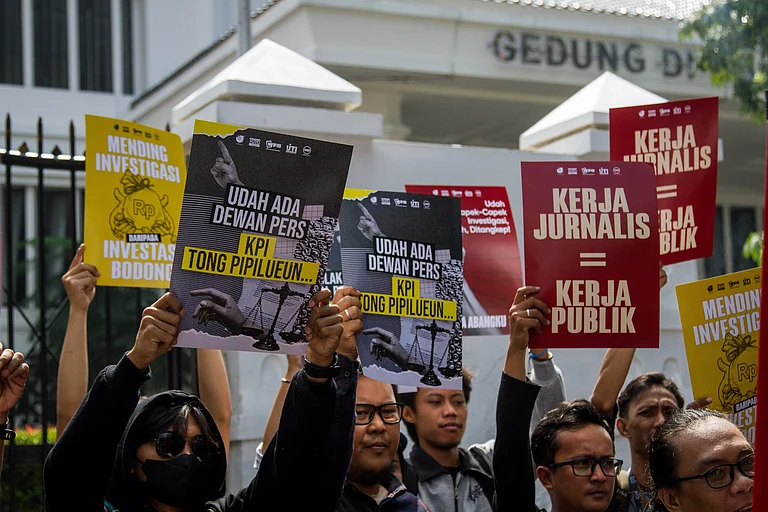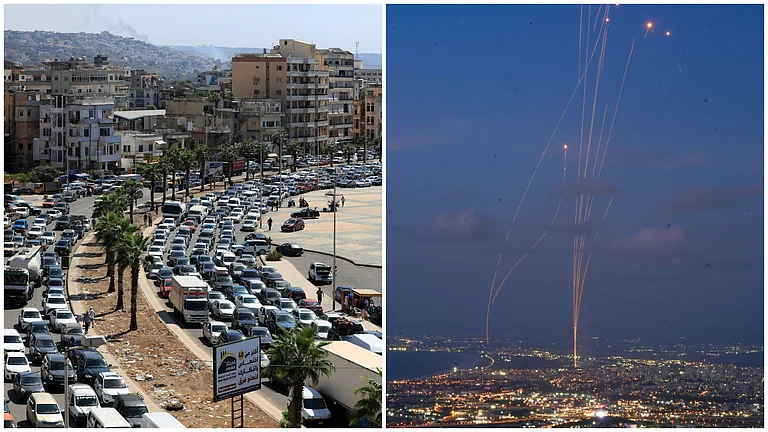There's no end to the number of conspiracy theories that have floated in a bid to decode the unprecedented simultaneous explosion of thousands of devices in Lebanon, particularly outdated communication devices called pagers used by the Hezbollah group, an incident being termed as a sophisticated remote attack carried out by Israel.
The first round of blasts went off on Tuesday wherever the holders of the pagers or walkie-talkies happened to be in multiple parts of Beirut and eastern and southern Lebanon — in homes and cars, grocery stores and cafes and on the street, even at a funeral for some killed in the bombings, often with family and other bystanders nearby. The second round of explosions was reported next day as walkie-talkies and solar equipment detonated in Beirut and other parts of Lebanon.
The alleged attack appears to be an attempt to severely disrupt internal communication of the Lebanese Shia Islamist political party and paramilitary group Hezbollah, which avoids using smartphones or regular phones and uses old-fashioned pagers instead to not get tracked by "enemies" - one of which for them is Israel.
At least 37 people were killed, including two children and members of Hezbollah, and some 3,000 wounded in the explosions Tuesday and Wednesday.
Israel has been blamed for the alleged remote attacks that have escalated tensions in the Middle East region that was already tense over Hezbollah and Israeli clashes over the war in Gaza. Israel has neither confirmed nor denied involvement in the attacks.
Hezbollah Chief's Bury Phones Call
According to 12 current and former defense and intelligence officials cited in a New York Times report, Israelis were behind the remote attack in Lebanon, an operation which the officials described as "complex and long in the making".
Information given by the officials, who spoke on the condition of anonymity due to the sensitivity of the subject, suggests that Israel saw an opportunity to carry out the complex operation when top Hezbollah official Hassan Nasrallah in February this year made an appeal to his followers to "bury, put in iron box and lock" their phones, which he said were the "agents".
Nasrallah had been pushing for years for Hezbollah to give up phones and instead invest in pagers, outdated communication devices that allow receiving data without giving away a user’s location or other compromising information, as per American intelligence assessments.
This was when Israel saw an opportunity.
Israel Saw Opportunity, Set Up Shell Company
In a duplex in a quiet neighbourhood of the Hungarian capital is the headquarters of a company that is linked to the manufacture of the pagers that exploded in Lebanon and Syria as part of an alleged Israeli operation against the Hezbollah militant group.
BAC Consulting, which shares the ground floor of the modest building in Budapest with other enterprises, is apparently a shell company that Israel had established much before Nasrallah decided to expand pager usage, according to the NYT report.
While it posed as an international pager producer, BAC Consulting looked like a legit company that was under contract to produce the devices on behalf of a Taiwanese company, Gold Apollo. The Taiwanese company said Wednesday that it had authorised the use of its name on the devices.
According to three Israeli intelligence officers cited in the report, at least two other shell companies were created as well to mask the real identities of the people creating the pagers.
BAC made pagers for ordinary clients as well, but what really mattered for the company was Hezbollah, for which the communication devices were produced separately. The pagers produced for Hezbollah contained batteries laced with the explosive PETN, according to the three intelligence officers.
The pagers began shipping to Lebanon in the summer of 2022 in small numbers, but production was quickly ramped up after Mr. Nasrallah denounced cellphones.
Hezbollah leader Nasrallah was alerted by allies that Israel had acquired new means to hack into phones, activating microphones and cameras remotely to spy on their owners, something that Israel invested millions on. According to three intelligence officials, word spread among Hezbollah and its allies that no cellphone communication, even encrypted messaging apps, was safe anymore.
Nasrallah vowed on Thursday to keep up daily strikes on Israel despite this week's deadly sabotage of its members' communication devices, and said Israelis displaced from homes near the Lebanon border because of the fighting would not be able to return until the war in Gaza ends.

Hezbollah and Israel launched fresh attacks across the border as Hassan Nasrallah spoke for the first time since the mass bombing of devices in Lebanon and Syria that he described as a “severe blow” - and for which he promised to retaliate.
“Yes, we were subjected to a huge and severe blow,” he said. “The enemy crossed all boundaries and red lines,” he said. Pointing to the number of pagers and walkie-talkies, he accused Israel of intending to kill thousands of people at one time. "The enemy will face a severe and fair punishment from where they expect and don't expect.”
Placing Hezbollah In Gaza War
The remote attacks at a time of rising tensions between Lebanon and Israel. The Lebanese militant group Hezbollah and Israeli forces have been clashing almost daily for more than 11 months against the backdrop of war between Israel and Hezbollah ally Hamas in Gaza, whose October 7, 2023, attack on northern Israeli areas sparked this conflict.
The clashes have killed hundreds in Lebanon, dozens in Israel and displaced tens of thousands on both sides of the border since then.
Hezbollah is a close ally of Iran, which had threatened to retaliate for the killing of a senior Palestinian militant group Hamas's leader, Ismail Haniyeh, in an explosion in Iran's Tehran in July that was widely blamed on Israel, which has not said whether it was involved. Later Israeli military claimed responsibility for a targeted strike that killed one of Hezbollah's founding members Fouad Shukur in July itself.

Last month, Israel and Lebanon's Hezbollah pulled back before igniting a long-feared war after the former launched a wave of airstrikes towards the latter, which responded with hundreds of rockets and drones to avenge the killing of one of its top commanders in July.


























